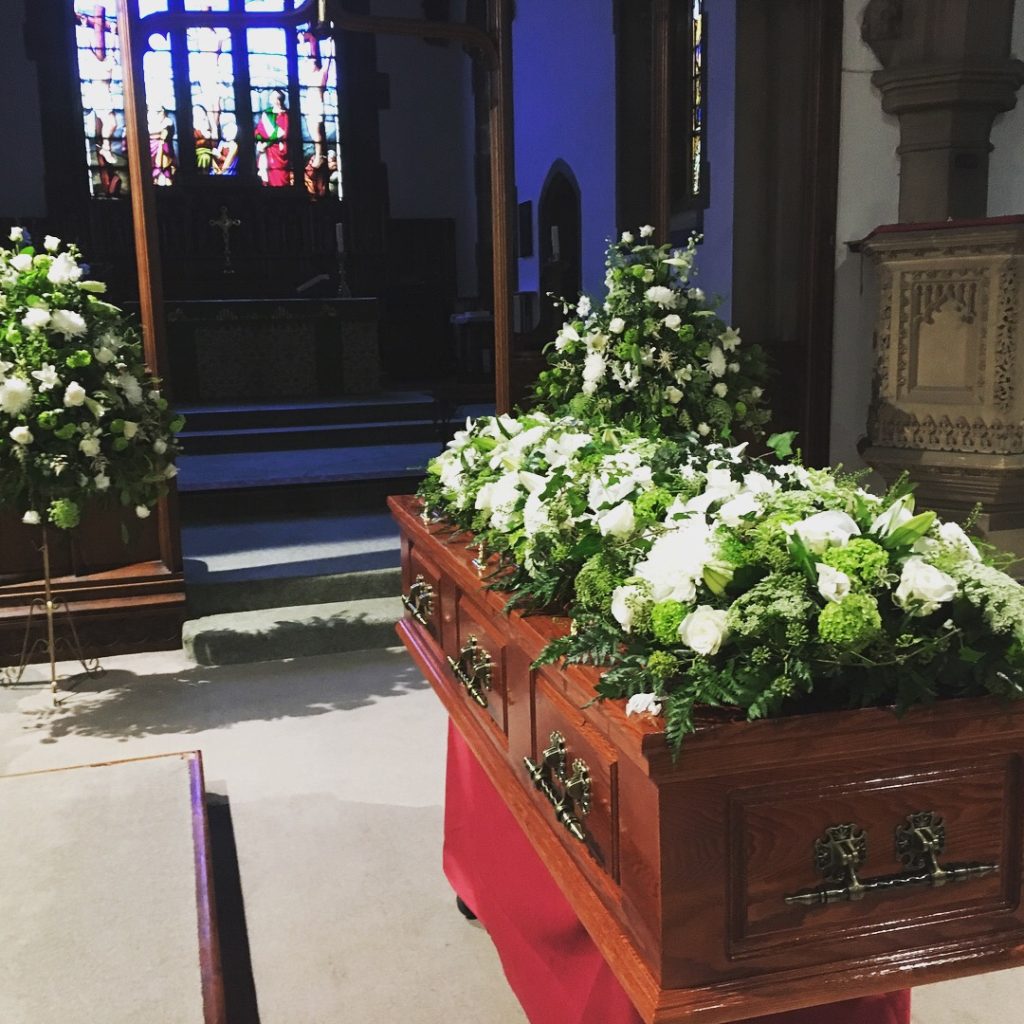

Understanding Funeral Costs


How much does a funeral cost and what is the most expensive part?
When you are planning a funeral, the subject of money and funeral costs might feel like something that shouldn’t be discussed. In reality, the cost can be a very real concern for many people and having clear knowledge of how prices are broken down is important. Paying for a funeral is a significant cost, which you may or may not be prepared for. It’s reassuring to have transparency and it also helps focus your mind when you are making decisions.
Never be afraid to ask about costs – it is your right to understand the cost associated with different options so that you can make the decisions that are right for you. We would strongly encourage you know how much a funeral costs, before it takes place so that there are no surprises when you receive the final invoice. Your funeral director should send you up to date estimates throughout the arrangement process so that you are always fully informed and can make decisions accordingly.


How funeral prices are structured
When arranging a funeral, it is important to know how much a funeral costs – we are often asked “How much does a funeral cost?”. Unfortunately most funeral directors have different ways of structing their prices and the costs ultimately depends on the choices that you make. Understanding how funeral costs are broken down, and asking for the funeral cost breakdown to be explained to you clearly, means that you can adapt your choices accordingly.
Typically, the cost of a funeral is made up of the following elements:
Funeral director fees
Third-party costs
Burial and/or cremation costs
The funeral director fees will include caring for the person who has died until the day of the funeral and providing practical and emotional support to help you arrange the funeral you want. Some funeral directors have one fee for all their services whereas others break it down into separate charges (for example for visiting the person who has died).
Third party costs can include things like paying for someone to conduct the service and fees for use of a church if you choose to hold a religious ceremony. In addition, there will be fees associated with the burial and/or cremation. In general, burial is approximately twice as expensive as cremation but his can vary from place to place.
These third-party costs also include flowers, newspaper notices and any services sheets that you have requested. If you are arranging to have refreshments after the funeral, then these would also be included in this section – in some cases this can be a significant part of the final invoice.
Sometimes the number of decisions you are being asked to make can feel quite overwhelming. We tend to find that some of these choices, such as the style of funeral and how the day will unfold come naturally from our conversations during the arrangement meetings.
When these discussions are allowed to progress gently, people begin to feel more confident about exploring their own ideas and preferences. You may be interested in reading our article about funeral options to learn a little more about some of the possibilities.


Understanding the value of funeral choices
Funeral costs can quickly add up and we recommend only spending money on things that you value, wherever possible. The best way to work out what really matters is to have an open and frank conversation with your funeral director about the different elements, the different options and the associated costs and ways to make sure that you stay within a budget that you feel comfortable with.
feel you may want to allow more time, for example if there are likely to be a lot of people There are many ways to make a funeral feel more personal and filled with meaningful ritual which promote positive connections. Family members may like to write a small note to be placed in the coffin, grandchildren may like to make some homemade bunting, or you could choose to place walking boots with a small plant on the coffin, rather than a large flower arrangement.
There are other ways to manage some of the costs, such as using the vehicles of family and friends and sharing lifts rather than hiring extra limousines. You friends and family might be invited to bring some food to share at the wake, or you might choose to pick some flowers from the garden to be places in a natural looking bouquet on the top of the coffin.


Paying for a funeral
As already mentioned, it is important to ask your funeral director for full visibility of costs so that there is nothing unexpected to deal with. You should be provided with an estimate of costs at a time when you can still review your choices and this estimate should be updated as the arrangements evolve so that you have an accurate idea of the costs at all times.
Funeral costs can usually be reimbursed from the estate of the person who has died. Some funeral directors are happy to wait until the grant of probate has been issued whereas others would expect this payment to be paid sooner. If you are unable to meet the costs or if there is not enough money in the estate to cover funeral expenses there is help available. You can find out more about how to find support to pay for a funeral on the Registration and Financial Affairs page of our website.
If you have any questions about paying for a funeral, then please don’t hesitate to get in touch – we are happy to help whenever we can.
You may be interested in our book Funerals Your Way which has lots of ideas to help you feel in control and not overwhelmed when you are planning a funeral.


